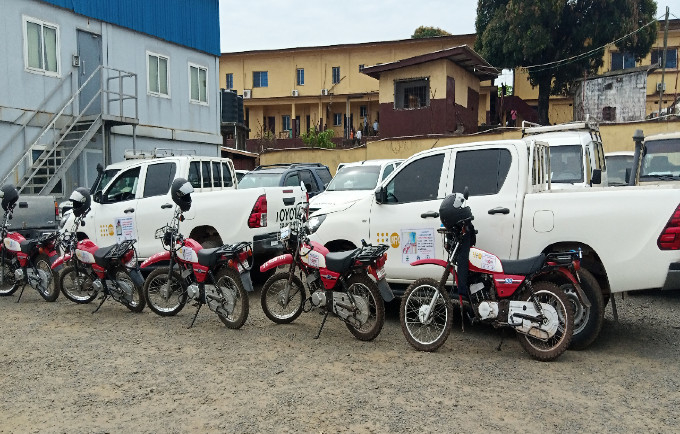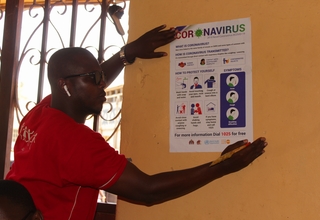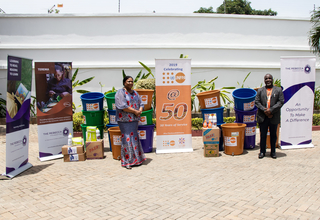On 16 March 2020, Liberia confirmed the presence of the Coronavirus disease (COVID-19) within its borders. One week later, health authorities declared a public health emergency; requesting all partners including the United Nations to support measures it had put in place to stop the spread of the disease in the country. These measures include restrictions on public gatherings in Montserrado and Margibi counties for the next 21 days and enhanced screening and quarantine measures to reduce the spread of COVID-19.
Responding to the health ministry’s request and working within the framework of the United Nations Country Team support to the Government’s COVID-19 fight, UNFPA, the United Nations Population Fund has begun working with the National Public Health Institute of Liberia (NPHIL) in disease surveillance and contact tracing.
In addition to providing logistics support to NPHIL, the UN Population Fund is also supporting the training and deployment of community residents, as well as general and community health workers to serve as contact tracers and health supervisors across Montserrado and Margibi counties, which are so far the epicenter of the COVID-19 outbreak in Liberia.
“The contact tracers are helping to speed up the identification, isolation and treatment of suspected individuals. Their tasks include follow up with contacts; that is individuals who had interacted with confirmed or probable Coronavirus cases; monitor whether they show symptoms and signs of COVID-19 and refer suspected cases to the response teams for prompt referral to Holding Centers for laboratory confirmation,” says Mr. Thomas K. Nagbe, Director, Infectious Disease and Epidemiology Division, National Public Health Institute of Liberia.

“Contact tracing and community prevention approaches offer an opportunity to disrupt COVID-19 transmission through scaling-up of effective, evidenced-based outbreak control measures that reduce further contacts and infections, by ensuring follow up of all available contacts, and thereby improving surveillance,” Says Dr Bannet Ndyanabangi, UNFPA Liberia Representative.
Dr Ndyanabangi spoke on Monday 24 March when he handed over 4 pickup trucks, 5 motorbikes and 60 pieces of mobile phones to the National Public Health Institute of Liberia (NPHIL) to support surveillance and contact tracing. The vehicles and motorbikes were previously on loan at the Liberia Institute of Statistics and Geo-Information Services (LISGIS) as part of UNFPA’s support to the conduct of the 2019 Demographic and Health Survey and upcoming Liberia population and housing census.
A Situation Report released by the National Public Health Institute of Liberia on 30 March highlights three positive COVID-19 cases with more than 430 people under close observation.



